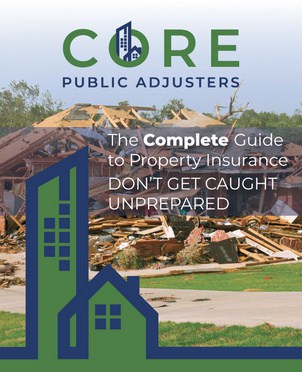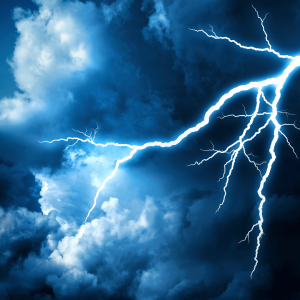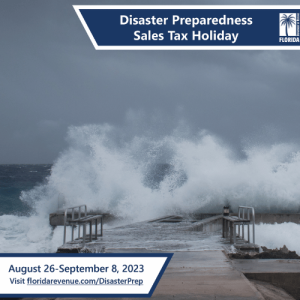Frequently asked questions
Filing an insurance claim can be a scary and complex process. We’ve compiled the most frequently asked questions to help you learn about the process and to provide tips on how to avoid common mistakes. Need more information? Contact us today! Conversations and consultations are always free.
Frequently Asked Questions about Public Adjusters
What is the role of a public adjuster?
Simply put, a public adjuster’s aim is to get you a fair settlement from your insurance company for your property damage. The role of a public adjuster is to act as an advisor, advocate, and claims manager, on behalf of an insured who has filed an insurance claim. At Core Public Adjusters, we:
- Conduct a full investigation and inspection of your damage.
- Prepare a detailed scope and cost estimate of your damage.
- Contact and bring in experts such as remediation, toxicology, construction, and engineers to further prove the extent of your loss.
- Provide insurance policy interpretation to determine covered and uncovered items.
- Submit an extensive claim package to the insurance company and demand full payment.
- Communicate and negotiate with the insurance company.
- Assist with post-settlement issues such as working with your mortgage provider and insurance company to get your settlement check faster.
Is it worth getting a public adjuster?
Each property damage insurance claim situation is different, but it is probably worth getting a public adjuster. Public adjusters are experts in compiling comprehensive damage estimates, reviewing insurance policies for proper coverage and exclusions, negotiating with insurance companies, and managing the entire claim process from submitting the claim to getting you paid. You’ll likely find it worth getting a public adjuster to help you unless you have this experience yourself.
How do you define “worth”? Is it in time or money or both? At Core Public Adjusters our entire team of specialized experts work countless hours on your claim, sparing you the time and stress of dealing with it yourself. More importantly, having a public adjuster helps to get you more money for your claim than not having a public adjuster. A Florida government study by OPPAGA (Office of Program Policy Analysis & Government Accountability) looking at Citizens Property Insurance claims, found that “public adjuster representation typically resulted in larger payments to policyholders.” For example, claims valued on average at about $2,000 by Citizens were paid on average of about $17,000 when a public adjuster was hired.
Public adjusters work for you, not the insurance company and this is an important fact for you to keep in mind. Insurance companies have experts working for them to reduce your claim settlement. You should have a public adjuster working for you to increase your claim settlement.
What percentage do public adjusters charge?
Standard fees are typically 20% of the insurance claim settlement. Florida public adjusters are regulated by the Florida Department of Financial Services. According to Florida statutes, public adjusters may charge 20% of the insurance claim payment and no more than that. However, if the claim is based on damage from a declared emergency, such as hurricane damage or tornado damage, the fee is regulated at 10% and no more than that.
Florida statutes also state that the public adjuster’s fee cannot be based on any payments made by the insurance company to the insured property owner prior to the time of the public adjuster contract. For example, let’s say you received $10,000 from the insurance company for hurricane damage. Your insurance company was unwilling to pay you more, in spite of submitting repair estimates of $30,000. You hired a public adjuster who was able to get you $20,000 more to total the $30,000 that you needed. You would only pay a fee based on the additional $20,000 the public adjuster negotiated for you.
The settlement amount you receive for your claim, when using a public adjuster, will typically far exceed the amount of money you receive from your insurance company without using a public adjuster. There have been cases of clients receiving 1x, 2x, and 3x the settlement amount after hiring a public adjuster.
Who pays the public adjuster?
You, the property owner, will pay public adjuster fees, which will be billed at the time you receive your settlement check. Credible public adjusters should never ask you to pay upfront.
What is the difference between an independent adjuster and a public adjuster?
The difference between an independent adjuster and a public adjuster is that an independent adjuster works for the insurance company, whereas a public adjuster works for the property owner. Independent adjusters work for the insurance company as contract workers. Sometimes referred to as “hired guns” these individuals work independently of the insurance company, but are hired to settle claims. Insurance companies will utilize independent adjusters in locations where they offer insurance policies to property owners but do not have a physical location or when claims surge within a short period of time and staff adjusters are unable to service them, such as with hurricane claims.
Whether you are dealing with a staff or independent insurance adjuster, beware of certain pitfalls. First, remember that they represent the insurance company’s best interests, not yours. Use caution when communicating with them.
Second, turnover rates are generally high for insurance adjusters, due to increasing caseloads and the stress that comes along with more work. Unfortunately, the insurance industry is facing a lack of incoming talent (Source: Claims Journal 2013 Job & Salary Survey) making it more challenging to service claims sufficiently.
All of this adds up to a daunting fact: you’re likely to have an inexperienced or overworked insurance adjuster assigned to your claim who doesn’t have the time to investigate all of the merits of your claim. Not only is this person inexperienced or overworked, but also they are under guidelines to offer you the least amount reasonably possible for your damage. The odds are not in your favor to receive fair treatment and adequate payment for your damage.
A public adjuster works for you. At Core Public Adjusters, we understand all of the finer details of the claims process, including what we mentioned above. We use our experience to craft smart and strategic negotiation strategies to clearly and quickly communicate the merits of your claim so that you get paid what you rightly deserve.
Frequently Asked Questions about Insurance Adjusters
What happens when an insurance adjuster comes to your house?
After you file a claim, your insurance company will send out a field adjuster to assess your damage and collect information. This includes asking questions and taking pictures and measurements. The field adjuster will compile the information in a report that provides a cost of your damage.
There are some pitfalls to avoid when an insurance adjuster comes to your house. First, be sure to answer questions honestly but do not guess. Remember that every interaction with the insurance company is an opportunity to mistakenly say something wrong.
Second, know that field adjusters are very busy, especially right after hurricanes and other natural disasters. They may be too rushed to properly document all the damage. They may not also document the finer details of your property’s construction, such as expensive “knock down” ceiling and wall texturing, or fancier-than-average crown molding and baseboards.
Finally, field adjusters are not construction experts. They may not realize that water running down your wall could have implications throughout the house for further damage.
These are all reasons why damage estimates written by insurance companies undervalue damage. When you hire a public adjuster they will conduct their own damage investigation and compile a comprehensive report estimating the true value of your damage.
When you hire Core Public Adjusters, we will be onsite with the field adjuster pointing out all of the areas of damage and special features of your property requiring equivalent replacement value, and simply to protect you from dealing with their questions yourself.
What should you not say to an insurance adjuster?
Every communication you have with an insurance adjuster is an opportunity to mistakenly say something wrong. They are looking for answers that will lead them to believe your damage isn’t covered under your policy. It is important that you answer the insurance adjuster’s questions so that s/he may submit a complete claim report of your damage. However, you should never guess at an answer. It is better to say “I don’t know” rather than “I think”.
It is a known fact that representatives of the insurance company look for contradictions in your answers or evidence that your damage is not their responsibility. This is another area where public adjusters earn their fee. A public adjuster will shield you from this trap. Public adjusters speak and act on your behalf with your insurance company so that you don’t have worry that what you say will be misconstrued.
Why does the insurance company want a recorded statement?
Simply put, the insurance company wants a recorded statement to track whether your answers to their questions change over time, questions such as “how did the damage happen?”, “when did the damage happen?”, and “what did you do to stop further damage from occurring?” This may be a red flag that they already anticipate underpaying or denying or claim and that they are trying to build an early case against you.
How long does a claims adjuster take to review the claim?
Florida statutes govern the maximum allowed time a claims adjuster has to review your claim and provide a settlement amount, in what is called the Homeowner Claims Bill of Rights. The Homeowner Claims Bill of Rights states that within 30 days after submitting a proof-of-loss statement your insurance company should confirm that your claim is covered in full, partially covered, or denied, or receive a written statement that your claim is being further investigated. The Homeowner Bill of Rights also states that within 90 days full settlement payment of the undisputed part of your claim should be disbursed, or receive communication that your claim is denied.
Unfortunately, as experts in this field, we know that it will likely take longer than that to receive full payment of what you deserve for your damage. Notice above that the insurance company only has to pay you the undisputed amount within 90 days. You may need more. We call this an underpaid claim. Or, your claim may be fully denied. In either case, you’ll need the expert help of a public adjuster to get you more.
Can I trust my insurance adjuster?
Realize that the insurance adjuster works for the insurance company and the implications of what that means. For example, your insurance adjuster will be looking for reasons to deny your claim. Know that you are not speaking with a friend. It is best that you communicate with any insurance company representative when your stress and emotional levels are low. Remain calm. Speak with them factually, and never guess in providing answers to their questions.






